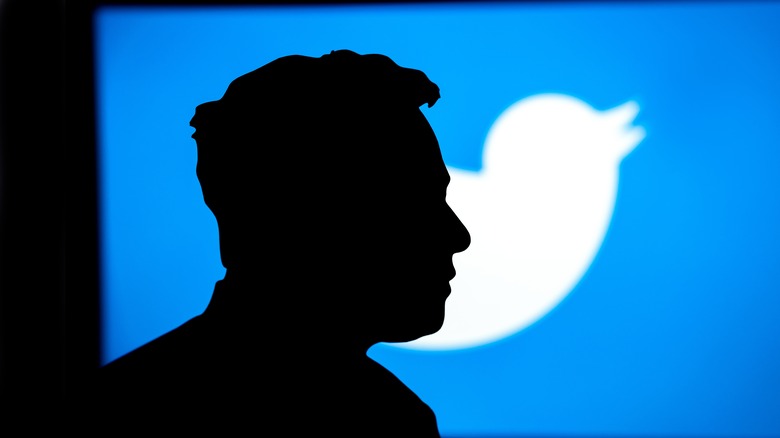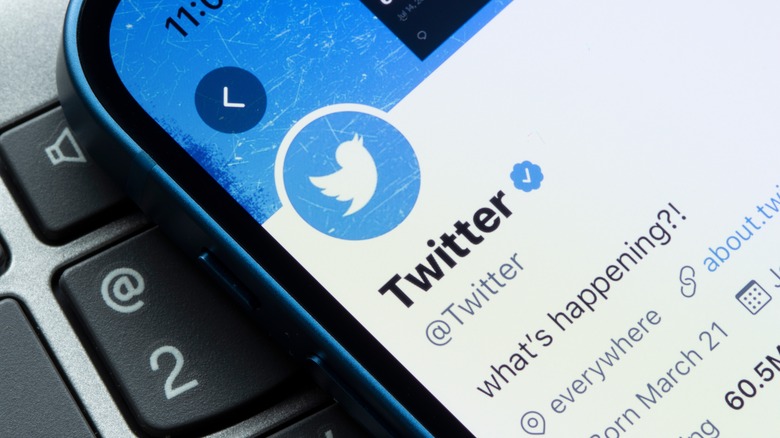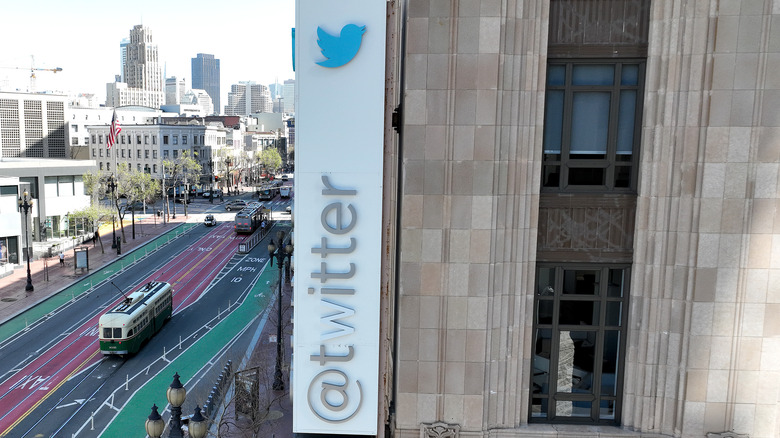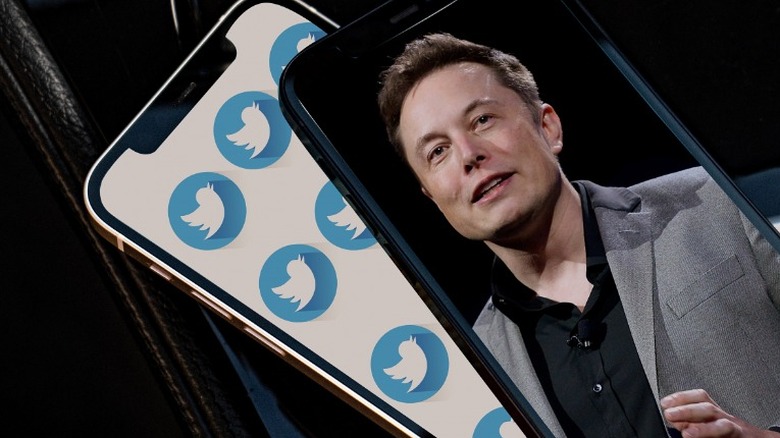Everything We Know About Elon Musk's Upcoming X App
Twitter, the company, has merged itself with a new parent company called X Corp under its new CEO Elon Musk. Right now, Twitter exists only as the namesake social media platform, but it is no longer recognized as a registered independent company. Official documents filed before a court in the Northern District of California (San Francisco Division) note that X Corp is "a privately held organization," while its parent entity is called X Holdings Corp for conducting business.
Now, this might sound like your run-of-the-mill consolidation of a company under the umbrella of another major label that also oversees the functioning of other sister companies. Take, for example, Alphabet, which owns Google, YouTube, Waze, and Nest among other companies that operate as their own standalone business entities. However, in the case of Twitter, the name "X" is more than just another brand label consolidation.
In 1999, Elon Musk established an online banking company called X.com alongside Harris Fricker, Christopher Payne, and Ed Ho. It eventually merged with Confinity, which then blossomed into the online payments giant that we now know as PayPal. The rights to X.com were sold to PayPal, but Musk bought the domain back from PayPal in 2017 for an undisclosed sum. With Musk putting Twitter's existence under the aegis of X Corp, speculation is rife about his oft-discussed project of turning Twitter into something more than just a social media app.
The precedent for an everything app
"Buying Twitter is an accelerant to creating X, the everything app," Musk tweeted in October 2022. Musk further added that turning Twitter into his dream everything app called X accelerates the pace of achieving that goal by about three to five years instead of building it from scratch, but he did caution that he could be wrong. Musk has lately been wrong about a lot of things, especially those related to Twitter, such as fiddling with its infrastructure in December to disastrous results, the flubbed Twitter Blue subscription system, and the rise of misinformation and abusive content on Twitter, among others.
The "everything" app that Elon Musk is talking about would go far beyond the confines of social media communication. Musk hasn't offered any granular feature-by-feature explanation of that X app yet, but the most evident template for such an app is WeChat. The well-known communication app has around a billion users in China, and it can do everything from messaging and payments to reading news, playing games, and booking a restaurant seat. Over in the Western Hemisphere, Meta isn't too far from those dreams. WhatsApp started as a messaging app, but it now offers a community feature, lets businesses showcase their product catalog, and even has a payment service that is now operational in India and Brazil, two of its biggest markets.
Twitter needs an everything maker
Musk's goal of turning Twitter into X, the everything app, could theoretically fulfill a ton of objectives. Twitter hasn't really printed money as a business. After flagging bankruptcy risks in the not-too-distant past, reportedly halving Twitter's net worth following the $44 billion purchase, Musk revealed in a Twitter Space session with BBC that the company is close to roughly breaking even, with the goal of achieving net positive cash flow in the coming quarters.
That really won't be easy, as advertisers don't have a particularly rosy outlook for Twitter, and the Twitter Blue subscription hasn't really turned the company's fortunes around just yet. Musk hedged his financial hopes on coaxing users into paying for a Twiter Blue subscription by dangling the bait of a verified badge and a few extra features like editing tweets, but all of that hasn't resulted in a massive uptake. On top of all that, eminent personalities — and even newsrooms like NPR — are bidding adieu to the platform. With so many tangible issues, the best bet for Twitter is turning the product into something more lucrative for the average internet-savvy social media user.
What Twitter can change toward the X goal
Right now, Twitter doesn't have any eye-catching features planned that will suddenly make it a better alternative to the likes of TikTok, Instagram, or Snapchat. Plus, Musk's lofty promises of turning Twitter into a creator economy powerhouse haven't really materialized. The best bet would be to focus on the convenience side of things. For example, building a voice or video calling system would be terrific. Twitter already allows an audio channel feature called Spaces, which focuses on the community aspect, but adding a tad more functional diversity just might make it more appealing to more users that haven't really experimented with Spaces.
Allowing limited video streaming and adding peer-to-peer payments would be a great start. Interestingly, Twitter is said to be working on a paywalled video feature for content creators, but that is yet to be officially released. Twitter already has some of that monetary infrastructure in place with its tipping feature. Next, the company could benefit immensely if it manages to win over partner companies and integrate their services into the social media app, the way OpenAI has been hawking its services via APIs and plug-ins lately. It would be interesting to see what plans Musk has in the pipeline for turning Twitter into an everything app that can accomplish something practically convenient for users at the end of the day.



